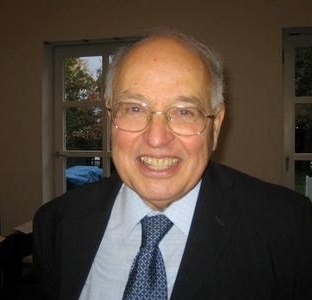On an article by Qunta magazine(when asked: Is there one big question that has always guided you?) https://www.quantamagazine.org/michael-atiyahs-mathematical-dreams-20160303
Contexto: I always want to try to understand why things work. I’m not interested in getting a formula without knowing what it means. I always try to dig behind the scenes, so if I have a formula, I understand why it’s there. And understanding is a very difficult notion. People think mathematics begins when you write down a theorem followed by a proof. That’s not the beginning, that’s the end. For me the creative place in mathematics comes before you start to put things down on paper, before you try to write a formula. You picture various things, you turn them over in your mind. You’re trying to create, just as a musician is trying to create music, or a poet. There are no rules laid down. You have to do it your own way. But at the end, just as a composer has to put it down on paper, you have to write things down. But the most important stage is understanding. A proof by itself doesn’t give you understanding. You can have a long proof and no idea at the end of why it works. But to understand why it works, you have to have a kind of gut reaction to the thing. You’ve got to feel it.
Michael Atiyah: Frases em inglês
[Michael Atiyah, Collected works. Vol. 6, The Clarendon Press Oxford University Press, Oxford Science Publications, http://www.math.tamu.edu/~rojas/atiyah20thcentury.pdf, 978-0-19-853099-2, 2160826, 2004]
[Michael Atiyah, Collected Works: Michael Atiyah Collected Works: Volume 1: Early Papers; General Papers, http://books.google.com/books?id=YJ0cZwxLECAC&pg=PA250, 28 April 1988, Clarendon Press, 978-0-19-853275-0, 250]
[Michael Atiyah, Michael Atiyah Collected Works: Volume 7: 2002-2013, https://books.google.com/books?id=Rm6VAwAAQBAJ&pg=PA286, 3 April 2014, Oxford University Press, 978-0-19-968926-2, 286]
On an article by Quanta magazine(when asked: Is there one big question that has always guided you?) https://www.quantamagazine.org/michael-atiyahs-mathematical-dreams-20160303
